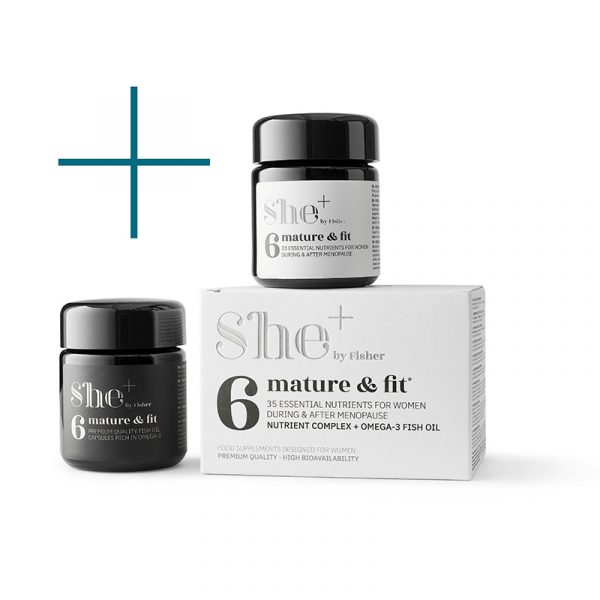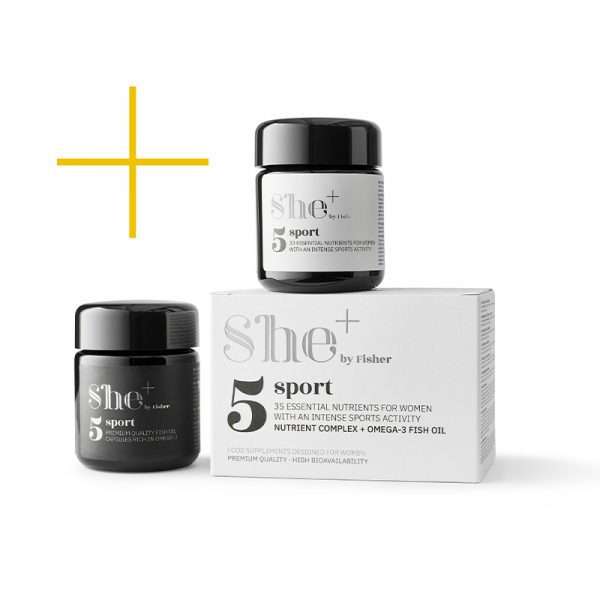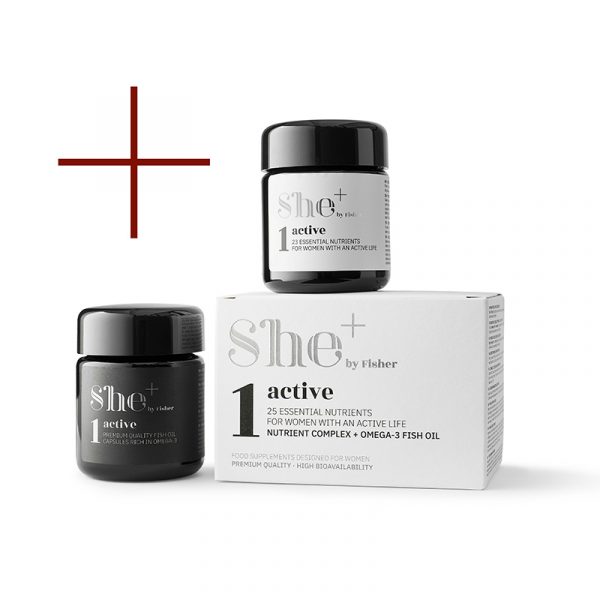Five Vitamins to Include in Your Diet During Menopause
Menopause is a phase in every woman’s life that often comes with hormonal changes and uncomfortable symptoms. Fortunately, the right dietary choices and vitamins can help alleviate these symptoms and support your overall health. In this article, we will discuss five essential vitamins that you should incorporate into your diet to better navigate menopause and improve your well-being. Continue reading to learn how these vitamins can contribute to a smooth transition through menopause and reduce the discomfort associated with it.

Can Vitamins Help Alleviate My Menopause Symptoms?
Menopause is a transitional phase during which the hormonal balance in the body changes, often resulting in a range of symptoms that can affect the quality of life. Many women wonder if vitamins can play a role in alleviating these symptoms. The answer is a resounding “yes.” Vitamins can significantly contribute to reducing menopause symptoms and enhancing your overall well-being.
The Importance of Vitamins During Menopause
Your body undergoes significant changes during menopause. The decrease in estrogen and progesterone can lead to symptoms such as hot flashes, mood swings, and fatigue. Vitamins play a crucial role in maintaining a healthy hormonal balance and supporting overall health. They help regulate hormones and can strengthen your immune system. It is essential to obtain sufficient nutrients to make this transition phase as smooth as possible.
How Can Vitamins Alleviate Symptoms?
Vitamins can alleviate menopause symptoms in various ways. They can help reduce hot flashes, night sweats, fatigue, and other discomforts. Each vitamin has unique properties and benefits that are specifically useful in alleviating certain symptoms. In the following sections, we will delve deeper into specific vitamins and how they can help reduce menopause symptoms.
Key Vitamins for Menopause
Menopause is a life phase accompanied by hormonal changes and a range of symptoms. It’s essential to get the right nutrients to make this period as comfortable as possible. There are five key vitamins that play a crucial role in supporting your health during menopause. These vitamins are Vitamin A, B-12, B-6, D, and E. Let’s delve deeper into each of these vitamins and understand why they are so important and how they can help alleviate menopause symptoms. Incorporating these vitamins into your diet can have a positive impact on your overall well-being and help you better navigate menopause. Keep reading to discover how these vitamins can support you during this life phase.
Vitamin A
Vitamin A is an essential nutrient, particularly important during menopause. This vitamin offers numerous benefits for your health and can help alleviate symptoms often associated with this phase.
Benefits of Vitamin A
Vitamin A is known for its positive effects on the skin and mucous membranes, which are especially important during menopause. It can help reduce vaginal dryness, a common symptom during this period. Additionally, Vitamin A supports the immune system and contributes to eye health. It also aids in maintaining healthy bones and teeth.
Food Sources of Vitamin A
You can obtain Vitamin A from various food sources. Foods such as carrots, sweet potatoes, spinach, kale, eggs, and liver contain significant amounts of Vitamin A. It’s important to follow a varied diet that includes these foods to ensure you get an adequate intake of Vitamin A. Incorporating these foods into your daily meals can contribute to alleviating menopause symptoms and maintaining good health.
Vitamin B-12
Vitamin B-12, also known as cobalamin, plays a crucial role during menopause and offers various benefits for your overall well-being.
Role of Vitamin B-12 During Menopause
Vitamin B-12 is essential for maintaining a healthy nervous system. During menopause, many women experience symptoms such as fatigue, irritability, and mood swings, often related to hormonal fluctuations. Vitamin B-12 can help reduce these symptoms because it has a positive impact on the nervous system. It also supports energy production in the body, which can help alleviate fatigue and improve overall mood.
Food Sources of Vitamin B-12
Vitamin B-12 is primarily found in animal products, such as meat, fish, eggs, and dairy products. Vegetarians and vegans can supplement Vitamin B-12 through enriched foods or supplements. It’s important to ensure you get an adequate intake of Vitamin B-12, as a deficiency can lead to fatigue and neurological issues. By including foods rich in Vitamin B-12 in your diet, you can contribute to improving your overall well-being during menopause.
Vitamin B-6
Vitamin B-6, also known as pyridoxine, is an essential vitamin that plays a significant role during menopause.
Benefits of Vitamin B-6 During Menopause
Vitamin B-6 offers various benefits that are particularly relevant to women going through menopause. It plays a crucial role in the production of neurotransmitters that regulate mood, such as serotonin and dopamine. This can help reduce mood swings and irritability, common symptoms during menopause. Additionally, Vitamin B-6 supports a healthy immune system and maintains a normal hormone balance.
Food Sources of Vitamin B-6
You can find Vitamin B-6 in various foods. Bananas, potatoes, chicken, fish, and whole grains are rich in Vitamin B-6. It’s essential to include these foods in your diet to ensure an adequate intake of Vitamin B-6. A balanced diet with these sources can contribute to alleviating menopause symptoms, maintaining a positive mood, and overall well-being. Considering Vitamin B-6 as a part of your diet can help you navigate menopause more comfortably.
Vitamin D
Vitamin D is a vital nutrient that is particularly important for women during menopause.
Importance of Vitamin D During Menopause
Vitamin D plays a crucial role in maintaining strong bones and the absorption of calcium in the body. During menopause, bone density decreases, increasing the risk of osteoporosis. Vitamin D can help reduce this risk and support bone health. Additionally, Vitamin D can be beneficial for your immune system, which is essential for warding off diseases and maintaining overall health.
Natural Sources of Vitamin D
The primary natural source of Vitamin D is sunlight. When your skin is exposed to sunlight, your body can produce Vitamin D. Additionally, you can find Vitamin D in foods like fatty fish (such as salmon and mackerel), eggs, and fortified foods like cereals and milk. It’s essential to ensure an adequate intake of Vitamin D, especially during menopause, to maintain bone health and strengthen your immune system. Consult with a healthcare provider regarding the appropriate Vitamin D intake for your specific needs.
Vitamin E
Vitamin E is an essential nutrient that can offer various benefits for alleviating symptoms and promoting overall health during menopause.
Benefits of Vitamin E for Menopause Symptoms
Vitamin E is a potent antioxidant that can help reduce hot flashes, one of the most common symptoms during menopause. It has the ability to decrease the frequency and intensity of hot flashes, making women feel more comfortable during this phase. Additionally, Vitamin E can improve skin health and help reduce dryness and itching, which are often experienced by women during menopause.
Food Sources of Vitamin E
You can find Vitamin E in various foods. Nuts, seeds, green leafy vegetables, and vegetable oils like olive oil are rich sources of Vitamin E. Including these foods in your diet can contribute to alleviating menopause symptoms and maintaining healthy skin. Consider adding Vitamin E-rich foods to your daily meals to enhance your well-being during menopause.
Risks and Warnings
While vitamins are important during menopause, there are some crucial risks and considerations to keep in mind.
Excessive Vitamin Use
Although vitamins are beneficial, it’s important to take them in moderation. Excessive intake of certain vitamins, such as vitamin A or vitamin D, can be harmful to your health. It can lead to toxicity and negative side effects. Therefore, it’s essential to monitor the recommended daily amounts and avoid taking extremely high doses on your own.
Interactions with Medications
Some vitamins can interact with medications you may already be taking. This can affect the effectiveness of your medications or cause side effects. Always consult with your doctor or pharmacist before taking supplements, especially if you are on prescription medication.
Medical Advice
It is highly recommended to consult with your doctor before making significant changes to your diet or adding supplements, especially during menopause. Your doctor can advise you on which vitamins are suitable for you, taking your medical history into consideration. This is important to ensure that you make the right choices for your health and well-being during this life phase.
Conclusion
Menopause is a life phase accompanied by changes in the body and often uncomfortable symptoms. Fortunately, vitamins offer a natural and effective way to alleviate these symptoms and improve your overall well-being during this transitional phase.
In this article, we discussed five important vitamins: Vitamin A, B-12, B-6, D, and E. These vitamins can significantly contribute to reducing menopause symptoms and supporting your health. Vitamin A helps reduce vaginal dryness, while Vitamin B-12 improves mood and energy levels. Vitamin B-6 regulates neurotransmitters that reduce mood swings, Vitamin D supports bones, and Vitamin E alleviates hot flashes and improves skin health.
It is crucial to follow a balanced diet and consider supplements if necessary, but always in moderation and in consultation with a healthcare provider. Menopause is a unique journey for every woman, and the proper use of vitamins can help you navigate this phase as comfortably and healthily as possible. Remember that healthy eating and lifestyle choices are also essential to support your overall well-being during menopause. Always consult a doctor or nutritionist for personalized advice tailored to your specific needs.




